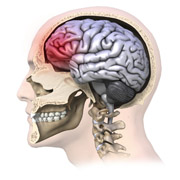Research and Innovation, UNL Office of

Center for Brain, Biology, and Behavior: Faculty Publications
Document Type
Article
Date of this Version
4-2016
Citation
Journal of Personality 84:2 (April 2016), pp. 204–213.
doi: 10.1111/jopy.12152
Abstract
Engaging in prosocial behavior can provide positive outcomes for self and others. Prosocial tendencies contribute to the propensity to engage in prosocial behavior.The oxytocin receptor gene (OXTR) has also been associated with prosocial tendencies and behaviors. There has been little research, however, investigating whether the relationship between OXTR and prosocial behaviors is mediated by prosocial tendencies.This relationship may also vary among different types of prosocial behavior. The current study examines the relationship between OXTR, gender, prosocial tendencies, and both altruistic and public prosocial behavior endorsement. Students at a midwestern university (N = 398; 89.2% Caucasian; Mage = 20.76; 26.6% male) provided self-report measures of prosocial tendencies and behaviors and buccal cells for genotyping OXTR polymorphisms. Results indicated that OXTR single nucleotide polymorphism (SNP) rs2268498 genotype significantly predicted empathic concern, whereas gender moderated the association between several other OXTR SNPs and prosocial tendencies. Increased prosocial tendencies predicted increased altruistic prosocial behavior endorsement and decreased public prosocial behavior endorsement. Our findings suggest an association between genetic variation in OXTR and endorsement of prosocial behavior indirectly through prosocial tendencies, and that the pathway is dependent on the type of prosocial behavior and gender.
Included in
Behavior and Behavior Mechanisms Commons, Nervous System Commons, Other Analytical, Diagnostic and Therapeutic Techniques and Equipment Commons, Other Neuroscience and Neurobiology Commons, Other Psychiatry and Psychology Commons, Rehabilitation and Therapy Commons, Sports Sciences Commons


Comments
Copyright © 2014 Wiley Periodicals, Inc. Used by permission.